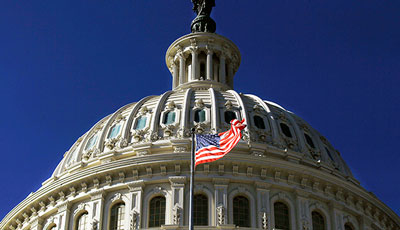Lawmakers Oppose Proposed Changes to Accounting Method

A bipartisan group of 115 House legislators asked Ways and Means Committee Chairman Dave Camp (R-MI) last week to reconsider making changes in his tax reform plan to an inventory accounting method used by many US businesses.
In a letter sent to Camp on May 29, the lawmakers – led by representatives James Lankford (R-OK) and Mike Thompson (D-CA) – urged the House’s top tax writer not to repeal the so-called last in, first out (LIFO) business accounting measure.
“I applaud Chairman Camp and his committee’s work to overhaul our nation’s broken 72,000-plus-page tax code. However, as we make much-needed tax reforms, we must also ensure we do not unfairly penalize companies that followed the previous tax rules,” Lankford said in a written statement.
There are two primary inventory accounting methods: LIFO and first-in, first-out (FIFO). Under the LIFO inventory accounting method, it is assumed that the last item entered into the inventory is the first item sold. Accordingly, the taxpayer’s ending inventory is valued at historical costs rather than the most recent costs, according to an article by Mike Godfrey of Tax-News.com.
He noted that taxpayers who currently use LIFO are required to calculate and track their LIFO reserves, which is the difference between the accounting cost of inventory calculated using the FIFO method and the same inventory using the LIFO method. The LIFO reserve is the deferred taxable income that results from using the most recent inventory costs to calculate the cost of goods sold, rather than the lower cost associated with historic inventory, Godfrey wrote.
But in his February tax reform proposal, Camp noted that with current just-in-time inventory methods, businesses are able to function without vast reserves of inventory, rendering LIFO outdated and less necessary. In his plan, businesses could elect to begin paying tax on the deferred LIFO income over a four-year period beginning in 2019, with 10 percent due that year, 15 percent due in 2020, 25 percent due in 2021, and 50 percent due in 2022.
Additionally, because the repeal of the LIFO method and the inclusion of the LIFO reserve in income could have a large effect on cash flow for small businesses, Camp’s provision enables LIFO reserves of businesses with 100 or fewer owners be subject to a reduced tax rate of 7 percent, according to Godfrey.
The lawmakers said the companies using the LIFO method will incur a tax liability on the historic difference between using the LIFO method or using the FIFO method – and that many likely did not factor in their business plans a tax bill arising from a retroactive change in the tax code. They believe shouldering such costs could jeopardize the existence of some of these businesses and the jobs they support.
“I do not believe it was Chairman Camp’s intent to saddle these companies with added tax burden, despite the fact that they have utilized the legal LIFO accounting method for years,” Lankford said. “I join this esteemed group of members to ask Chairman Camp to remove this provision from our House tax reform proposal to ensure we do not unduly punish hardworking businesses with yet another problem in our tax code.”
Thompson added: “Repealing LIFO will have a devastating impact on businesses across our districts and country. The purpose of comprehensive tax reform should be to create jobs, make things simpler for people and businesses, and get our fiscal house in order. Ending LIFO will have the opposite effect. It will put people in the communities I represent out of work, punish businesses who have depended on this type of accounting for 70 years, increase their tax burden, and cause further economic uncertainty.”
Source: accountingweb





























